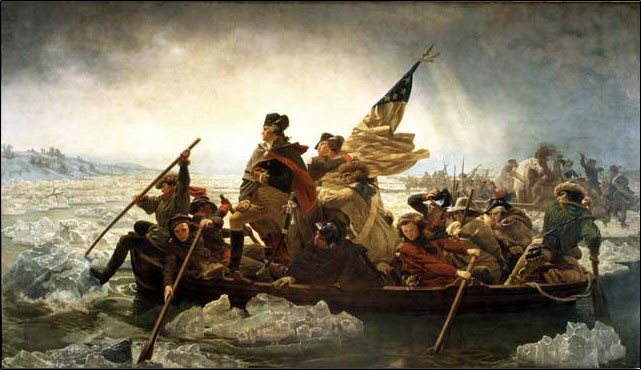
The Enlightenment
Enlightenment thinkers believed that human progress was possible through the application of scientific knowledge and reason to issues of law and government. During this era, philosophers, scientists, and others applied rational thought to human endeavors well as to the natural world. These ideas stimulated religious tolerance and fueled democratic revolutions around the world.

Washington Crossing the Delaware during the American Revolutionary war. Emanuel Leutze (1816–1868)
Not all of the thinkers had the same ideas about mankind. Thomas Hobbes wrote Leviathan and believed that humans exist in a primitive “state of nature” and consent to government for self-protection. In contrast, Locke, author of Two Treatises on Government, believed that people are sovereign and consent to government for protection of natural rights to life, liberty, and property. Montesquieu promoted the separation of governmental powers in The Spirit of Laws. Jean-Jacques Rousseau wrote in The Social Contract that government is a contract between rulers and the people. Lastly, Voltaire believed that religious toleration should triumph over religious fanaticism and promoted the separation of church and state.
These philosophies fueled revolutions in the Americas and France. The “Declaration of Independence,” as well as the U.S. Constitution and the Bill of Rights incorporated Enlightenment ideas. In addition, the Enlightenment influenced art, music, literature, and technology.




